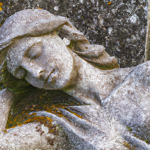Wall Memorials: Preserving History and Honoring Lives
Introduction:
Wall memorials have become an integral part of societies around the world, serving as powerful reminders of significant events and individuals who have shaped our collective history. These poignant displays offer a physical embodiment of remembrance, providing a space for reflection, commemoration, and healing. In this article, we will explore the significance of wall memorials, their historical context, the emotions they evoke, and their importance in preserving our past.
The Historical Context of Wall Memorials:
Wall memorials have a rich historical background that can be traced back to ancient civilizations. From the Egyptian hieroglyphs adorning the walls of tombs to the Roman inscriptions commemorating fallen soldiers, humans have instinctively sought to etch their memories into the very fabric of their surroundings. These early forms of wall memorials were not only a means of remembrance but also a way to ensure that future generations would remember the sacrifices made by their ancestors.
The Emotional Power of Wall Memorials:
Wall memorials have an undeniable emotional impact on those who encounter them. Whether it’s the Vietnam Veterans Memorial in Washington, D.C., or the Berlin Wall Memorial in Germany, these somber displays evoke a range of emotions, from grief and sorrow to gratitude and reverence. The names etched into the walls serve as a stark reminder of lives lost or altered forever. As I stood before the Vietnam Veterans Memorial, tracing the engraved names with my fingers, I couldn’t help but feel a profound sense of connection to those who had made the ultimate sacrifice.
Preserving Our Past:
One of the primary functions of wall memorials is to preserve history. These monuments allow us to remember and learn from the past, ensuring that future generations do not forget the triumphs and tragedies that have shaped our world. As time passes, memories fade, and stories become distorted. However, wall memorials stand as a testament to the events and individuals they commemorate, providing a tangible link to our shared heritage. They serve as a touchstone for historical research, enabling scholars and historians to delve deeper into the complexities of our past.
Healing and Closure:
Wall memorials also play a vital role in the healing process for communities affected by tragedy or loss. They provide a space for collective grieving, allowing individuals to come together and find solace in their shared experiences. These memorials often become focal points for annual commemorations, where survivors, families, and friends can gather to honor their loved ones. As I attended a memorial service at the Oklahoma City National Memorial, I witnessed firsthand the healing power of such a space. Strangers embraced, tears were shed, and stories were shared, all in an effort to find closure and begin the process of healing.
The Importance of Inclusive Memorials:
In recent years, there has been a growing recognition of the need for more inclusive memorials that acknowledge the diverse experiences and contributions of marginalized communities. Traditional wall memorials have often focused on military sacrifice or historical events, overlooking the stories of women, people of color, and other underrepresented groups. Today, efforts are being made to rectify this imbalance by creating memorials that reflect the true diversity of our society. These inclusive memorials serve as a reminder that history is not a monolithic narrative but a tapestry woven from countless individual stories.
Summary:
In conclusion, wall memorials are not mere structures of stone and metal; they are living testaments to our collective past. They provide us with a tangible connection to history, evoke powerful emotions, and foster healing within communities. As we continue to preserve and create inclusive memorials, we ensure that the stories of all individuals are remembered and honored. Let us cherish these solemn spaces, for they remind us of the triumphs, losses, and resilience of the human spirit.












